DEVELOPING
RESEARCH
PROPOSALS
SUCCESS IN RESEARCH
The Success in Research series has been designed by Pam Denicolo and Cindy Becker to provide short, authoritative and accessible guides for students, researchers and academics on the key area of professional and research development.
Each book is written with an eye to avoiding jargon and each aims to cut to the chase of what readers really need to know about a given topic. These are practical and supportive books and will be essential reading for any students or researchers interested in developing their skills and broadening their professional and methodological knowledge in an academic context.
DEVELOPING
RESEARCH
PROPOSALS
PAM DENICOLO

LUCINDA BECKER
Pam Denicolo and Lucinda Becker 2012
First published 2012
Apart from any fair dealing for the purposes of research or private study, or criticism or review, as permitted under the Copyright, Designs and Patents Act, 1988, this publication may be reproduced, stored or transmitted in any form, or by any means, only with the prior permission in writing of the publishers, or in the case of reprographic reproduction, in accordance with the terms of licences issued by the Copyright Licensing Agency. Enquiries concerning reproduction outside those terms should be sent to the publishers.
SAGE Publications Ltd
1 Olivers Yard
55 City Road
London EC1Y 1SP
SAGE Publications Inc.
2455 Teller Road
Thousand Oaks, California 91320
SAGE Publications India Pvt Ltd
B 1/I 1 Mohan Cooperative Industrial Area
Mathura Road
New Delhi 110 044
SAGE Publications Asia-Pacific Pte Ltd
3 Church Street
#10-04 Samsung Hub
Singapore 049483
Library of Congress Control Number: 2011929080
British Library Cataloguing in Publication data
A catalogue record for this book is available from the British Library
ISBN 978-0-85702-865-5
ISBN 978-0-85702-866-2 (pbk)
Typeset by C&M Digitals (P) Ltd, India, Chennai
Printed in Great Britain by CPI Group (UK) Ltd, Croydon, CR0 4YY
Printed on paper from sustainable resources
This book is dedicated to all the research students who have taught us so much as their supervisors or in our Graduate School roles, and to all the colleagues with whom we have shared struggles, disappointment and elation when seeking research funding to pursue our various intellectual passions.
LIST OF BOXES, ACTIVITIES, TABLES AND FIGURE
Boxes
Activities
Tables
Figure
ABOUT THE AUTHORS
Professor Pam Denicolo, a chartered constructivist psychologist, has a research commitment to improving learning and teaching in H.E., focusing on the needs of graduate students, their supervisors and other professionals seeking to develop their practice. Her passion for supporting graduate students and other early career researchers is demonstrated through her numerous successful doctoral candidates and her lead roles in national and international organisations such as the UK Council for Graduate Education, the International Study Association on Teachers and Teaching, the Society for Research into Higher Education Postgraduate Network, the Impact and Evaluation Group and other working groups of Vitae, and the QAA Doctoral Characteristics Advisory Group, all of which have resulted in many publications, presentations and workshops.
Dr Lucinda Becker, an award-winning Senior Lecturer and Teaching Fellow in the Department of English Language and Literature at the University of Reading, has spent her career committed to enhancing the skills of undergraduates and research postgraduates. She has written numerous successful study skills guides for students. As a professional trainer she also works throughout the United Kingdom and Europe, devising and delivering training in communication and management techniques, principally to lawyers, engineers and scientists.
Pam and Cindy worked exuberantly together for many years managing and developing the Graduate School at the University of Reading and providing a substantial contribution to its research methods, generic skills and doctoral supervisor training.
PROLOGUE
SERENDIPITY
The world of research and particularly of successful research proposals is replete with examples of serendipity. There is a conundrum in your discipline area that has been puzzling you for some time, niggling away at the back of your mind; you spot information on a website about opportunities to study for a doctorate that indicates that proposals are being sought in the general intellectual realm of your previous studies; it is brought home to you by a particular personal circumstance that this might be a good time to engage in further study the possibility of applying to study for a PhD becomes enticing. Or instead, perhaps you notice some potential connections between objects or ideas; a chance arises to talk your notions through with a colleague who agrees that the possibilities look intriguing; over coffee you notice in a professional publication that your discipline funding body has a call-out for bids to do research on a topic that fits in with your new ideas the scene is set for you to begin writing a research proposal for funding.
Recently serendipity paid us a visit: a publisher (SAGE) emailed to ask about the potential for a book on proposal writing the mail went to the foot of the large pile of things to think about; the next day students in our Graduate School requested a workshop on how to get further funding once they had completed their studies. Later that week a colleague from Student Recruitment met one of us at a meeting and bemoaned the parlous state of applications she had received, requiring her to request more polished proposals before she could pass them on to potential supervisors. The heap of tasks yet to do had not decreased but the combined signals made us retrieve the publishers mail. Perhaps there was something worth following up but was there really enough to say to fill a book?
We sent out messages to colleagues across a range of disciplines to solicit key points they would want to include in guidance to proposal writers. Their very useful responses indicated that there are concerns in common related to the quality of proposals and the need for some down-to-earth guidance. The sub-topics they noted were each worthy of chapters in their own right: when a proposal is needed, where to find funding, how to write , what should be included in the methods section, how much detail is needed in the budgeting section, where you can get support this book began to quietly gestate while we considered its range of coverage and who might be its readership. (Note that terms in bold are defined in the Glossary.)
INTENDED READERS
We decided that we should not lose sight of those who originally inspired the book early career researchers either seeking to begin doctoral research or to move on from that first large stepping stone into the world of funded research. Thus this book may prove helpful to you if you aspire to register for a research degree or if you are in the first few years of a paid career in research and keen to (or simply must) acquire funding to continue your research. We recognise that people come to both of these life points having had a range of prior experience and having developed a variety of skills and, equally, needing to polish up or even acquire others. Therefore we have provided guidance on each of the many facets of research proposals, moving rapidly from a basic level to the much more sophisticated level required for success.

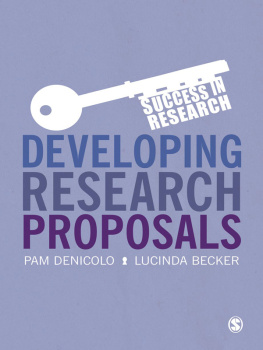

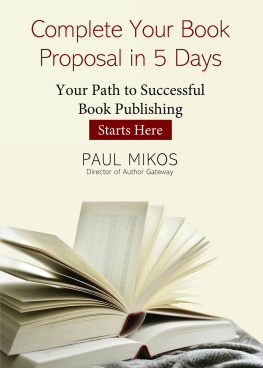
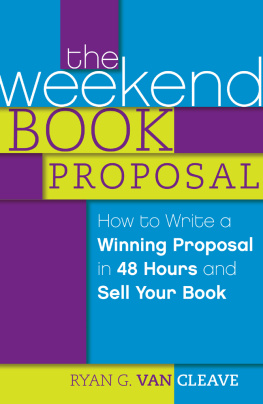
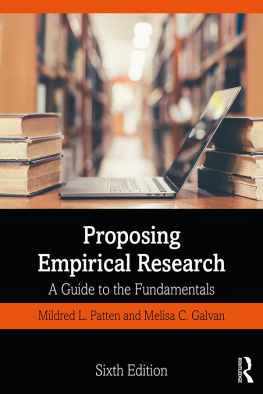
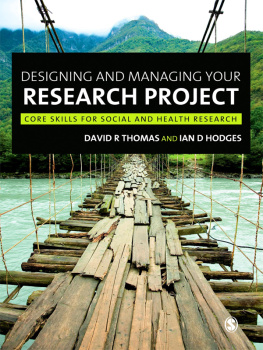
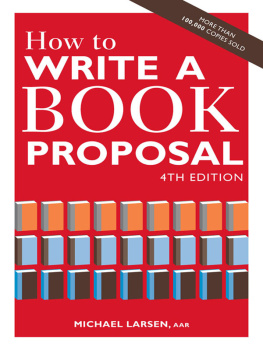
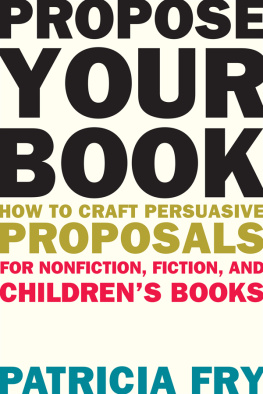
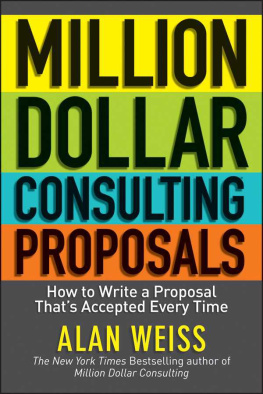

 LUCINDA BECKER
LUCINDA BECKER
